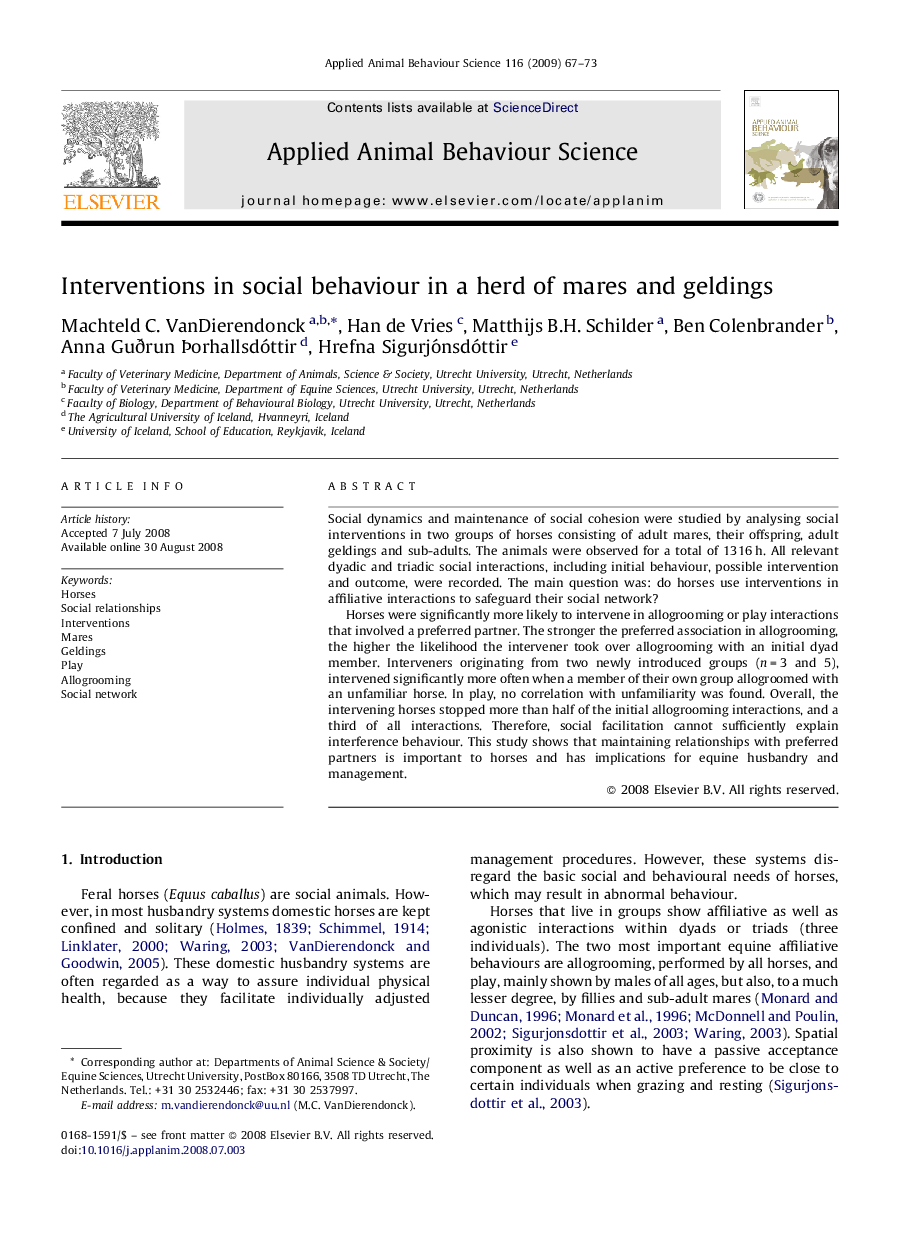| Article ID | Journal | Published Year | Pages | File Type |
|---|---|---|---|---|
| 4523577 | Applied Animal Behaviour Science | 2009 | 7 Pages |
Social dynamics and maintenance of social cohesion were studied by analysing social interventions in two groups of horses consisting of adult mares, their offspring, adult geldings and sub-adults. The animals were observed for a total of 1316 h. All relevant dyadic and triadic social interactions, including initial behaviour, possible intervention and outcome, were recorded. The main question was: do horses use interventions in affiliative interactions to safeguard their social network?Horses were significantly more likely to intervene in allogrooming or play interactions that involved a preferred partner. The stronger the preferred association in allogrooming, the higher the likelihood the intervener took over allogrooming with an initial dyad member. Interveners originating from two newly introduced groups (n = 3 and 5), intervened significantly more often when a member of their own group allogroomed with an unfamiliar horse. In play, no correlation with unfamiliarity was found. Overall, the intervening horses stopped more than half of the initial allogrooming interactions, and a third of all interactions. Therefore, social facilitation cannot sufficiently explain interference behaviour. This study shows that maintaining relationships with preferred partners is important to horses and has implications for equine husbandry and management.
